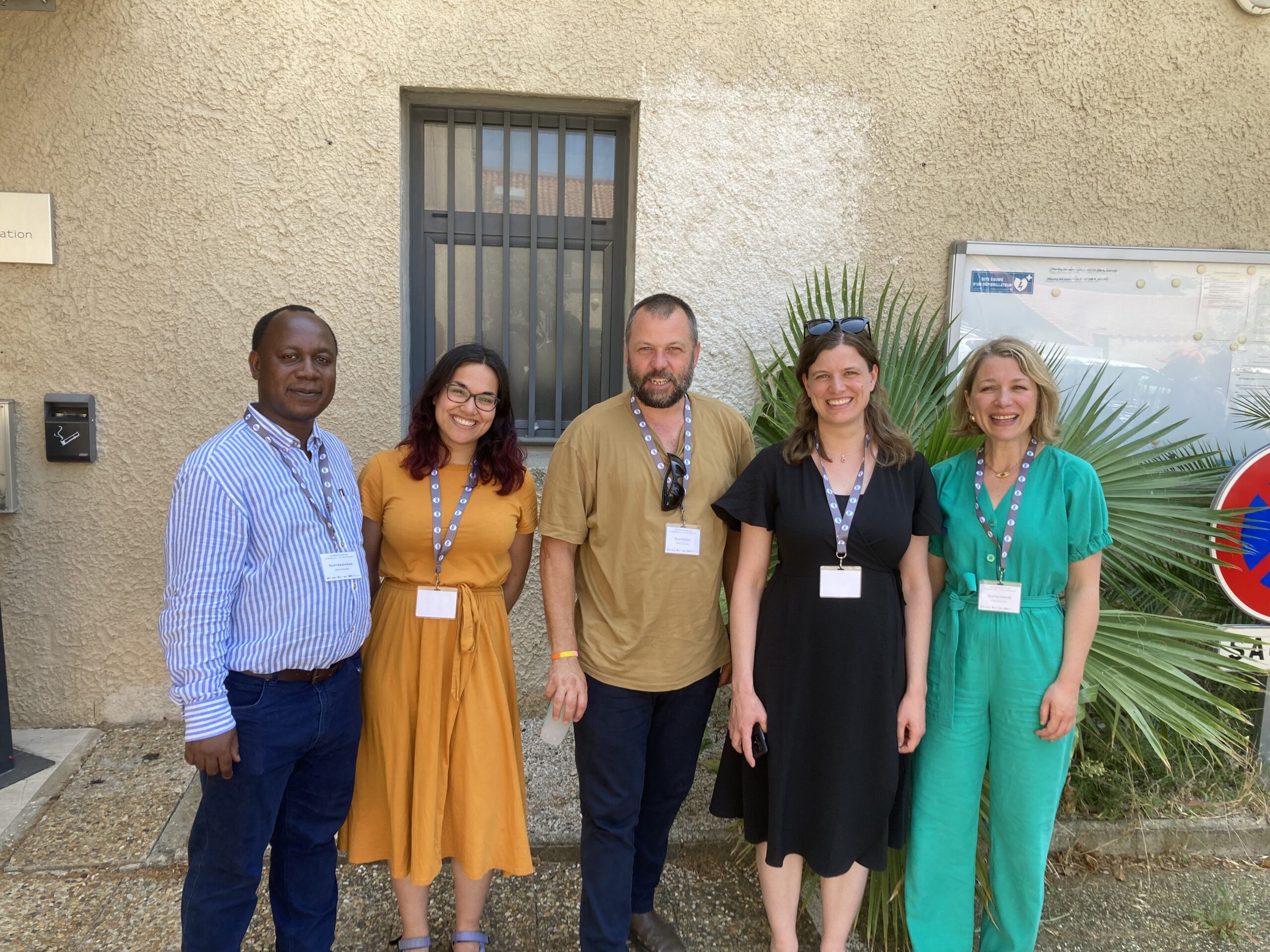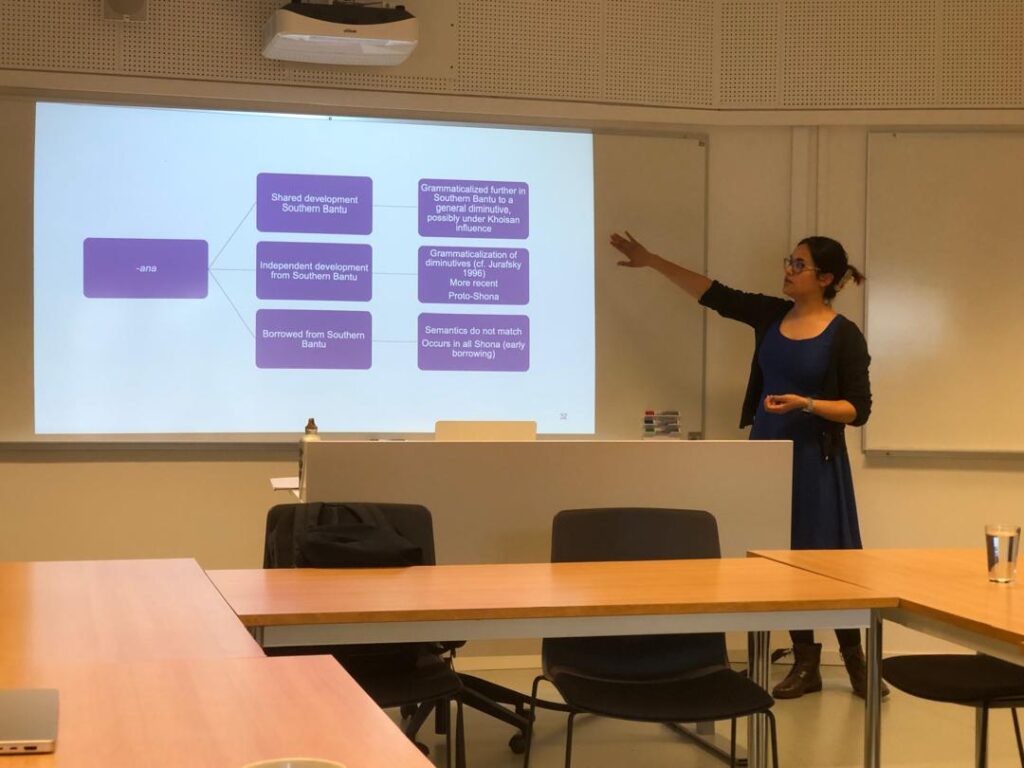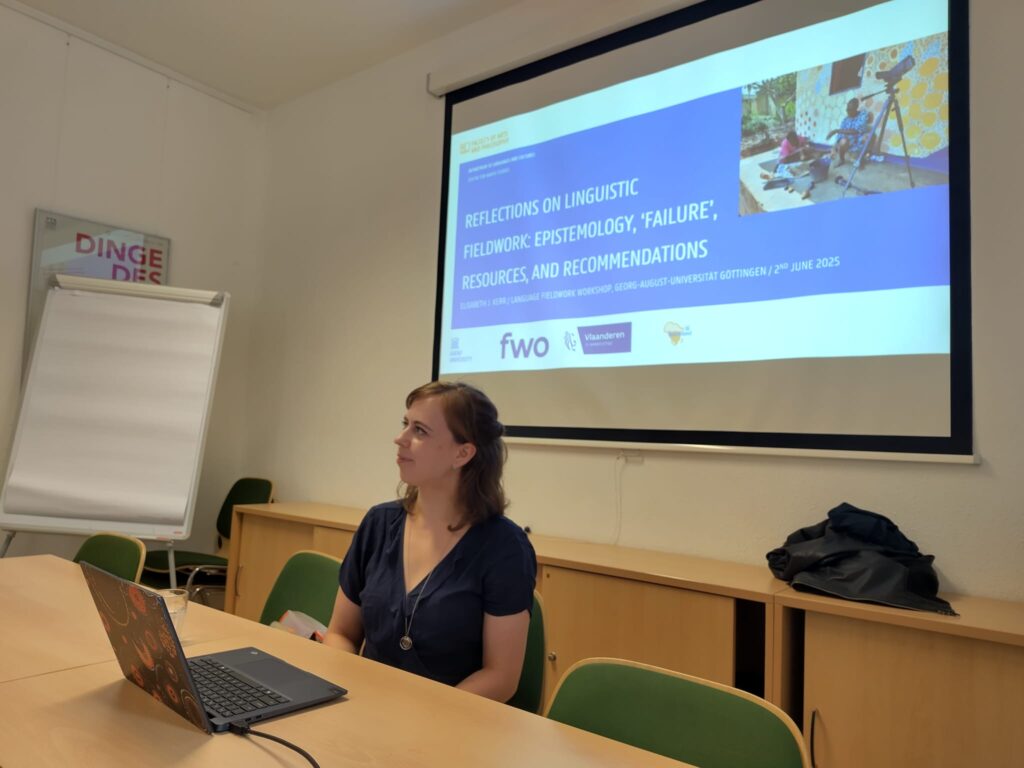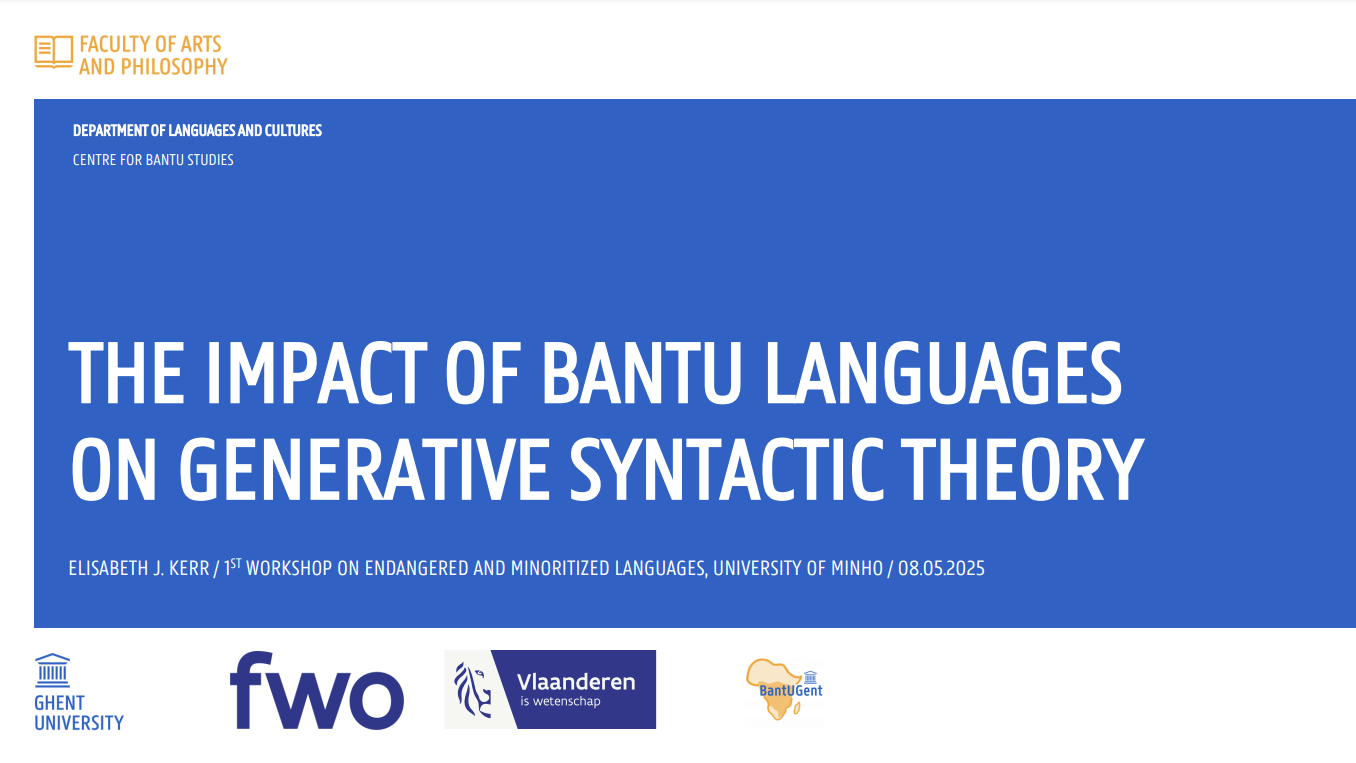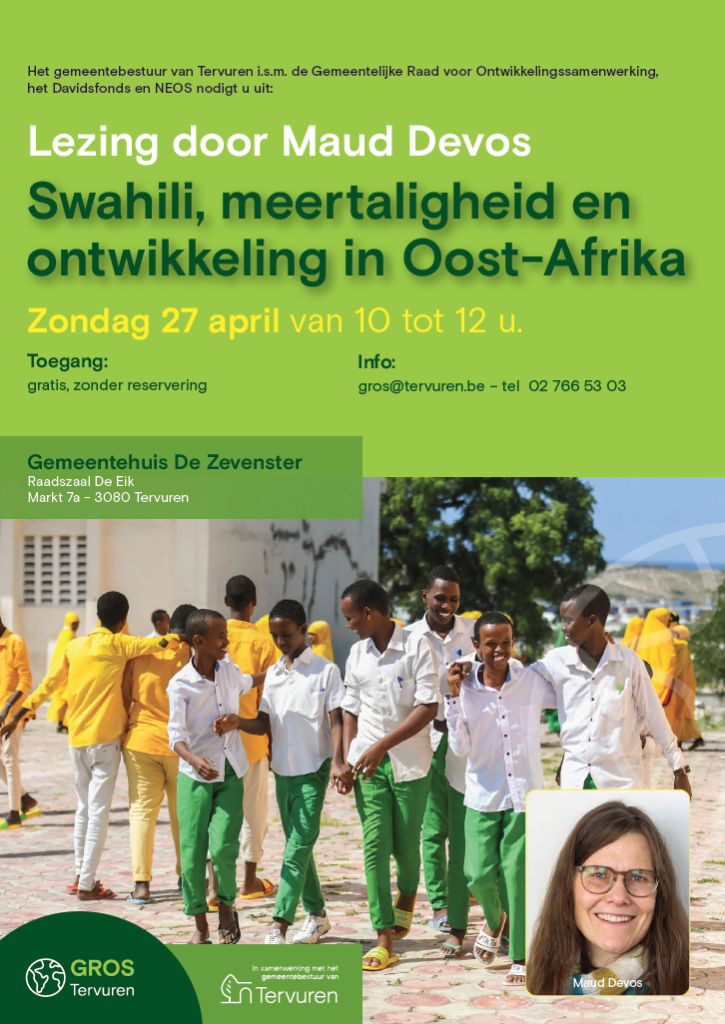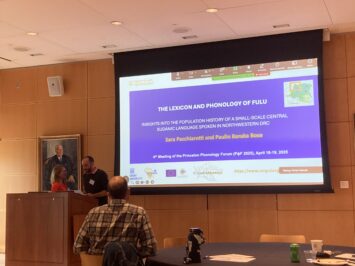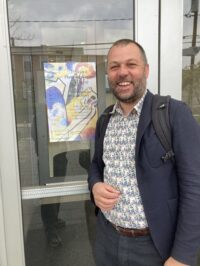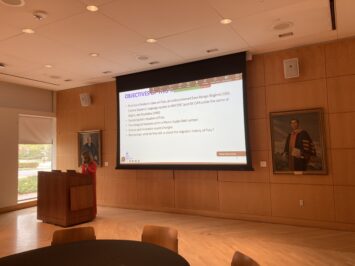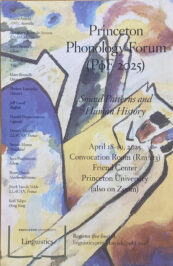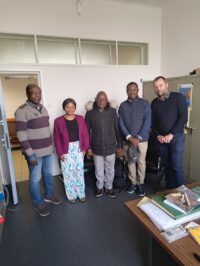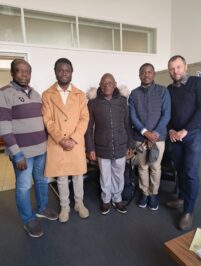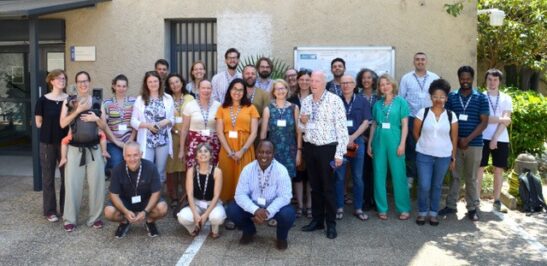
The ANR-DFG SocioBaGs project investigates variation and change in the nominal classification systems of the Bantu languages. During a three-day workshop (June 26-28, 2026) at the Laboratoire Parole et langage (CNRS) of the University of Aix-Marseille, members of the SocioBaGS scientific committee as well as researchers from outside the project core team gathered to exchange ideas and findings on the latest research about the typology of Bantu and non-Bantu nominal classification systems and the population history and contact dynamics of sub-Saharan Africa.
BantUGent was well represented with team members being involved in four different talks.
- Koen Bostoen, Jean-Pierre Donzo Bunza Yugia and Sara Pacchiarotti. The historical impact of Ubangi language shifters on Bantu gender systems:
the case of Ngombe (Bantu, C41). - Sara Pacchiarotti, Paulin Baraka Bose and Koen Bostoen. The gender system of Gezon, a poorly known variety of Pagibete (Bantu C401).
- Rasmus Bernander, Antti Laine and Nina van der Vlugt. On the status of Bantu class 19 in Eastern Bantu.
- Hilde Gunnink. Noun class assignment of loanwords in Bantu: comparing European and African donor language.
The workshop’s entire program is available here.
